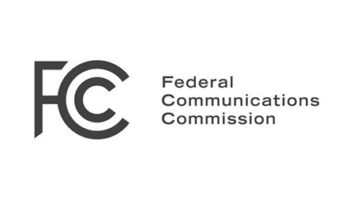One of the great “Catch 22s” of broadcasting is the Federal Communications Commission’s practice of issuing “armchair violations.”
A series of yes/no questions is asked on FCC Form 303-S, an application for license renewal, covering EEO, public file and other issues. The catch is in the Public File question, which states: “Licensee certifies that the documentation, required by 47 C.F.R. §73.3526 or §73.3527, as applicable, has been placed in the station’s public inspection file at the appropriate times.”
Can this question ever be answered “yes” with absolute integrity and certainty? Was there ever a time during the eight years of your license term in which a document was placed in the file a day or two late? For that matter, can a licensee be certain that someone looking at the file at some point during the term did not find a document to be missing?
The thing to do in many cases — and this is what many stations have done — is to check “no” and offer an explanation in an exhibit, explaining that while the file now is complete, the licensee cannot state with absolute certainty that all required documentation was placed in the file at exactly the appropriate times over the entire license period.
The trouble is that the FCC can and does issue “armchair violations” in such cases, which they sometimes view as de facto admissions of rule violations.
By taking the alternative and checking “yes,” licensees run the risk that at some point, some person has observed a required document to be missing and reported the incident. That report could well trigger prosecution of the FCC’s grand mal violation: misrepresentation.
This practice seems unfair. An analogy might be when you go to the DMV to renew your driver’s license. The clerk asks, “Have you at any time during the expiring term of your license violated any traffic law?” If you answer no, perhaps the clerk has a traffic camera photo of you running a red light. If you answer yes, there is a policeman standing there with his ticket book.
This represents a no-win situation, and so does the FCC’s renewal app public file question. Further, the fines for such violations tend to be felt by smaller stations and NCEs much more keenly than big companies.
We understand why the FCC would be concerned about cases like the station in Arkansas whose public file was incomplete for almost seven years and was missing 26 issues/programs lists. There’s a difference between a station that simply missed or misplaced a document and one that essentially doesn’t even have a public file.
But even in such cases, we feel troubled when the staff declares, as it has, that stations can expect no good will for self-reporting on the renewal form or for having taken corrective steps, after discovering a problem, to make sure it doesn’t happen again.
We encourage the FCC to rephrase its question to ask if, to the best of the licensee’s knowledge, the required documentation was placed in the file at the appropriate times, and the licensee has substantially complied with the public file rule in good faith. Such phrasing avoids backing a licensee into a corner with no good place to go.
Also, isn’t it time to do this online? In these days of electronic documentation it would seem a relatively minor task to create an online database in which licensees could place their issues/program lists. This would be as easy if not easier than printing the paperwork and moving it to a specific locked file cabinet and wouldn’t require half the staff to be trained on how to find the filings. If the FCC is in a mood to write fines, it can do a search on the database and see who filed the lists.
But we further encourage the FCC to stop the practice of issuing “armchair violations.” In our view, this practice does nothing but promote misrepresentation on renewal applications. And if it must enforce this way, give credit for stations that have been honest and taken steps to address a problem.
— Radio World











